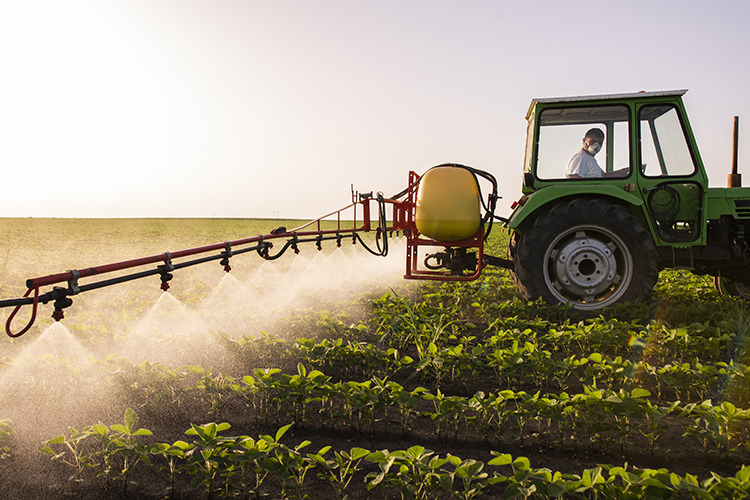
Input retailer Disam, which has 27 stores spread throughout agricultural producing regions in the state of Paraná, recently stopped selling fertilizers. According to head of commercial Carlos Zorzetto, producers do not want to pay the current high prices. In the state of Rio Grande do Sul, another important agricultural producing region, fertilizer application is expected to decline between 10% and 15% this year, with a projected consumption of 4.6 million tonnes. In the state of Mato Grosso, Brazil’s heavyweight soybean-growing region, fertilizer sales are also expected to decline.
The reflections of the new high prices of nitrogen, phosphates, and potassium in 2022, which have already risen between 100% and 200% last year, are beginning to gain concrete contours in the day-to-day in the field at an important time of the year. In the second and third quarters there is a concentration of purchases of inputs, especially for the 2022/23 season, which begins in September.
A projection recently elaborated by consulting company MacroSector, specialized in agribusiness, points to a $7.3 billion expenditure with imports in the second quarter, an amount that, if becomes a reality, will represent an increase of 193% in comparison with the same period of 2021. “We have already seen a 300% increase this year in potash,” says Mário Sérgio do Prado, CEO of Coonagro (Paraná). The cooperative has a mixing machine.
The high disbursement projected by MacroSector for the current quarter, however, is expected to buy only 8 million tonnes – 2% less than the volume purchased by the country in the same period of 2021. In the first quarter there was already a decrease. Brazil bought 8% less chemical fertilizers than in 2021, spending 109% more, Secretariat of Foreign Trade (Secex) data indicate.
In April, partial data showed a 10% increase in the volume imported in relation to the same month in 2021. “There was a movement of anticipation of purchases,” recalls Fabio Silveira, managing partner at MacroSector. There can be a gap of 45 to 60 days between the signing of fertilizer contracts and delivery, especially in a geopolitical context like the current one. The concentration, therefore, does not necessarily represent an evolution in the volume imported during the year.
According to Mr. Silveira, the trend is that the scenario will repeat itself in the third quarter. “Everything indicates that, with this, we may see a reduction in the cultivated area. But there will be no shortage of food,” he concludes. Producers have sought alternatives to maintain productivity per hectare and the margin of their business.
In the state of Rio Grande do Sul, for example, one way to mitigate the impact of prices has been to choose nutrients with less technology applied. “If the producer used a premium formula, he now chooses a less concentrated one,” says Diego Wasmuth, input commercial manager with Cotrijal, based in Rio Grande do Sul. Without this, the drop in application in the state would be 20%, continues Mr. Wasmuth.
“Each soil is different,” says Mr. Prado, with Coonagro. According to the executive, the land in Paraná, for example, has a fertilizer bank due to years of planting techniques. If a producer in the region applies 30% less fertilizer, there will not be a significant impact on productivity this year.
The point of view is similar to that of SLC Agrícola’s CEO, Aurelio Pavinato. In a recent interview with Bloomberg, he told that the company, which grows soybeans, corn and cotton, plans to use between 20% and 25% less fertilizer in the 2022/23 season. “It is possible to cut fertilizer in one year and have zero impact on production,” he said.
In the state of Mato Grosso, the Mato Grosso Institute of Agricultural and Livestock Economy (IMEA) is concluding a survey on input sales. “But there is already a certainty that the application of fertilizers will be lower, especially for those who left it to the last minute,” says IMEA’s superintendent Cleiton Gauer. With the increase, fertilizers now represent 46% of the costs (average so far) in soybean in the state, against 33% in the previous season.
Source: Valor International
